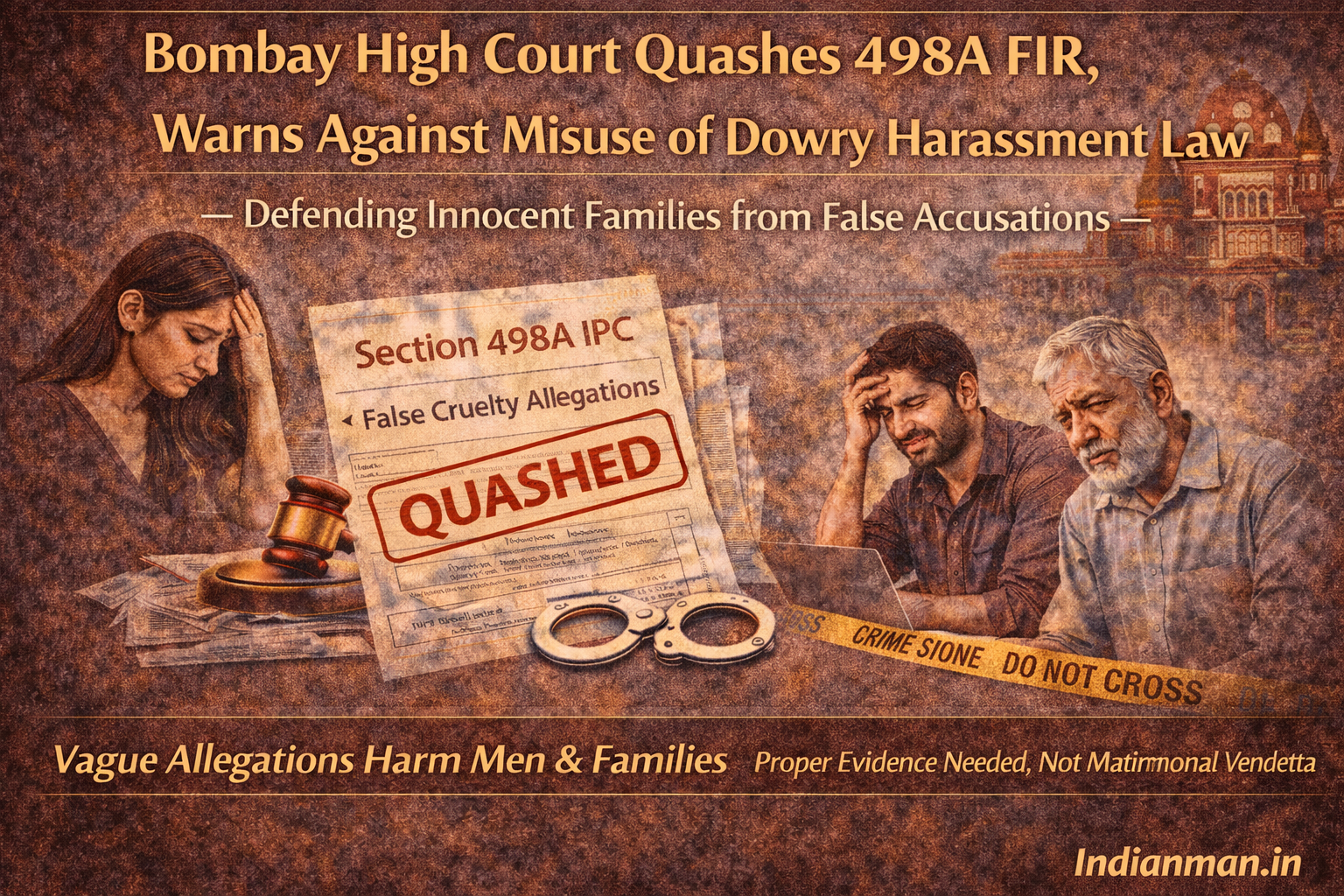The Bombay High Court has recently ruled that mental cruelty can occur even if the in-laws live separately from the complainant. The court’s observation came as it dismissed a petition by the relatives of a man challenging criminal charges against them filed by his wife.
The wife alleged that her in-laws demanded dowry and subjected her to cruelty. The relatives were charged under Sections 498-A, 323, and 524 of the IPC, as well as Sections 3 and 4 of the Dowry Prohibition Act.
Justice Sunil B. Shukre and Justice M. W. Chandwani of the Nagpur bench noted that despite the in-laws living apart, they had contact with the complainant through phone calls and visits. These interactions reportedly involved humiliation and harassment.
The court stated, “Mental cruelty is not confined to physical presence. The use of modern communication tools like phones can still constitute cruelty.” The court observed that despite the physical distance, the interactions and communications were sufficient to establish a prima facie case of mental cruelty.
The court highlighted that allegations against one of the applicants included threats of using her influence to impede legal proceedings if the complainant did not comply with demands. This serious allegation was a key factor in deciding to put the applicants on trial.
While the court acknowledged that no cruelty charge under Section 498-A IPC could be proven against another woman simply for having an affair with the complainant’s husband, it noted that she could be held accountable in her role as the husband’s cousin-sister.
The applicants argued that the FIR’s allegations were insignificant, but the court disagreed, emphasizing that the FIR forms the foundation of a criminal case. The court maintained that mental cruelty, being an abstract concept, does not require physical proximity and can be inflicted from afar.
In conclusion, the court fined the applicants Rs. 10,000 for misusing legal processes and dismissed their petition, affirming that the case against them warranted further consideration.
Case Title: Sunita Kumari and Ors. v. State of Maharashtra and Anr.
Be a part our social media community:
Facebook: https://www.facebook.com/IndianMan.in?mibextid=ZbWKwL
Instagram:
https://www.instagram.com/indianman.in?igsh=MWZ2N3N0ZmpwM3l3cw==




